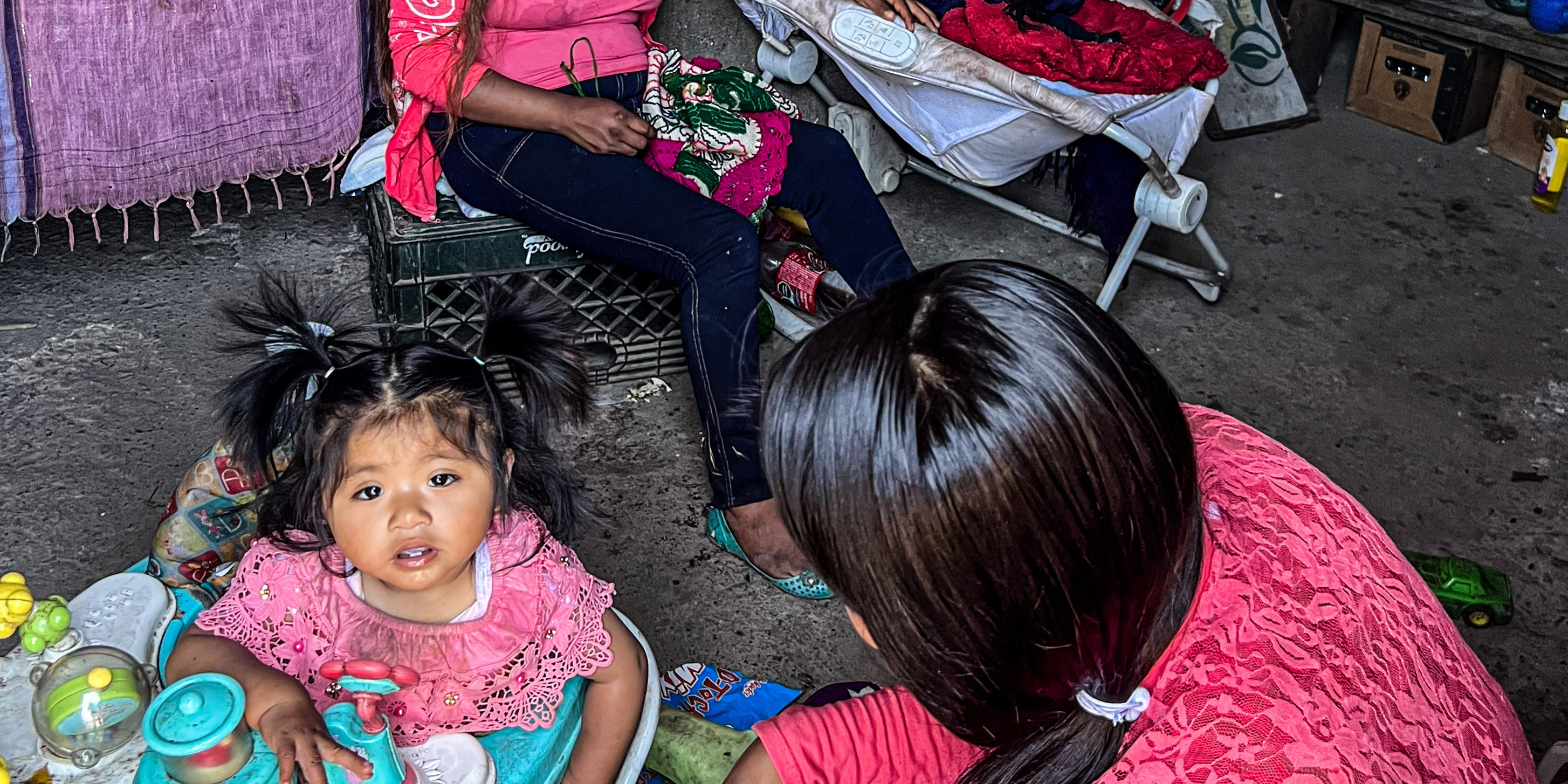I didn’t know how to feel as I handed out lime Jello made in small individual plastic baggies to young Mexican children at the migrant farmworker camp outside of the beautiful town of Ensenada. Their deep brown eyes looked at me with curiosity from their dirty little faces, and I was disappointed and embarrassed at my poor Spanish. Most of them spoke another language anyway since they migrated there from other parts of Mexico. When I rolled up to the camp in my casa on wheels that would undoubtedly be a lavish dream home to any family there, I wished I had brought a lot more than just a bag of fruit.
All I knew before arriving was that I would help feed some children, but they needed a lot more than a meal from the looks of it. As I was welcomed into the camp, a mother hen guided her cute baby chicks past me. I wondered why the emaciated dogs there slept peacefully nearby instead of helping themselves to a chicken dinner.

The “Kitchen”
I was introduced to the main cook for the camp and handed her the bag of bananas and apples I had brought for the children. She proudly showed me her “kitchen.” It was a rough room, about six feet tall and four feet wide, made with pieces of old wooden planks. It had no door or window, and there wasn’t so much as a sink. Inside, a make-shift bench comprised of bricks covered with coals and ash served as the “stove.” The kettle on top glowed yellow with some kind of soup. She demonstrated how she used the tortilla maker, but I could hardly concentrate. How did these people live in such conditions?

Feeding the Children
I volunteered to help in the serving line, where a meal of tuna salad and tortilla chips awaited the crowd. One of the volunteers explained that when the children turned twelve, they had to join their parents and work in the fields. I couldn’t think of a more grim “birthday present” for an adolescent. I think she noticed my reaction and explained that it was actually one of the best possible outcomes. I asked if any of the kids attended school, and sadly, the answer was no.
The camp residents ate, and then we volunteers were asked if we were hungry. After seeing the kitchen, I had lost my appetite, but I could see the disappointment on her face when the other volunteers passed on eating. So, I graciously accepted, even though I wasn’t hungry and don’t like tuna salad. I’m a bit of a health nut and rarely eat pasta or anything out of a can, and I buy organic whenever possible. Still, I tried my best to act as if I enjoyed the taste and appreciated the humble meal.

Awful Living Conditions
Afterward, I walked around and checked out the living conditions. They shared only a few banjos, and I didn’t see any place to bathe. There was a rough outdoor water tap atop a cinderblock sink. I was astounded that there was only one sink for the entire encampment. But even with such poor living conditions, clean laundry hung from clotheslines, and the children played happily with some simple toys. I clicked a few photos with great apprehension, afraid they might be ashamed of how they lived. So, I held my smartphone up first with a questionable look on my face to get permission first, and to my surprise, they seemed proud of what meager possession they had.

The Need for Bare Necessities
I was overwhelmed with emotion. It saddened me to think of any kids growing up without school, having to work in the fields, or going hungry. I used my dog Ozzie who waited patiently inside my camper van, as a good excuse to leave. There was nothing more I could do anyway except blog about it and try to raise some funds to help. Since then, I’ve been brainstorming short-term and long-term solutions while crying tears of pity. What if they had a sort of free “consignment store” with used shoes, clothing, and essentials? Did they have soap, diapers, and maxi-pads? What about toothbrushes and toothpaste? Would the kids enjoy coloring books? What would it take to build a small school with a whiteboard and chairs? Would they even attend? I have so many questions and don’t know where to start. I’m apprehensive about getting involved. It sounds like a lot of work, but how can I forget what I witnessed?

I’m writing this blog on Mother’s Day. I’m so grateful that I was able to raise my kids in a typical white middle-class home in rural Washington State. How many things did we take for granted, clean water, plenty of food, a soft bed? You can help wherever you are. If you choose, your donation will be used to help feed the children and provide bare necessities.







